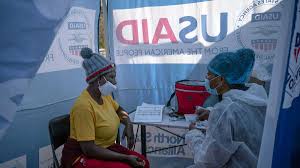
In a recent development, the United States is tying health aid to the sharing of data on dangerous pathogens, requiring countries to provide information on bugs that could trigger large-scale disease outbreaks in order to receive support for tackling illnesses like HIV and malaria, according to government documents.
The Trump administration is negotiating new bilateral aid agreements with dozens of countries, following an abrupt withdrawal from existing arrangements earlier this year. These agreements are part of the America First Global Health Strategy, announced in September.
A draft template sited by the media, intended for memorandums of understanding with partner countries, offers funding to combat malaria, TB, HIV, and polio, as well as support for surveillance, laboratory systems, and electronic health records.
The draft suggests that countries will be expected to gradually take over funding for these areas over the course of the five-year agreements.
In return, the agreements include conditions requiring countries to share biological specimens and genetic sequences of “pathogens with epidemic potential” with the US within days of identification.
A full 25-year specimen-sharing agreement is still being drafted. The current draft does not mention any specific benefits for countries sharing data, such as guaranteed access to medicines developed from it.
The draft memorandum and accompanying technical guidance also suggest that countries will be expected to recognize U.S. regulatory approval of drugs as meeting domestic requirements, particularly where there are large domestic markets or other strategic reasons.



